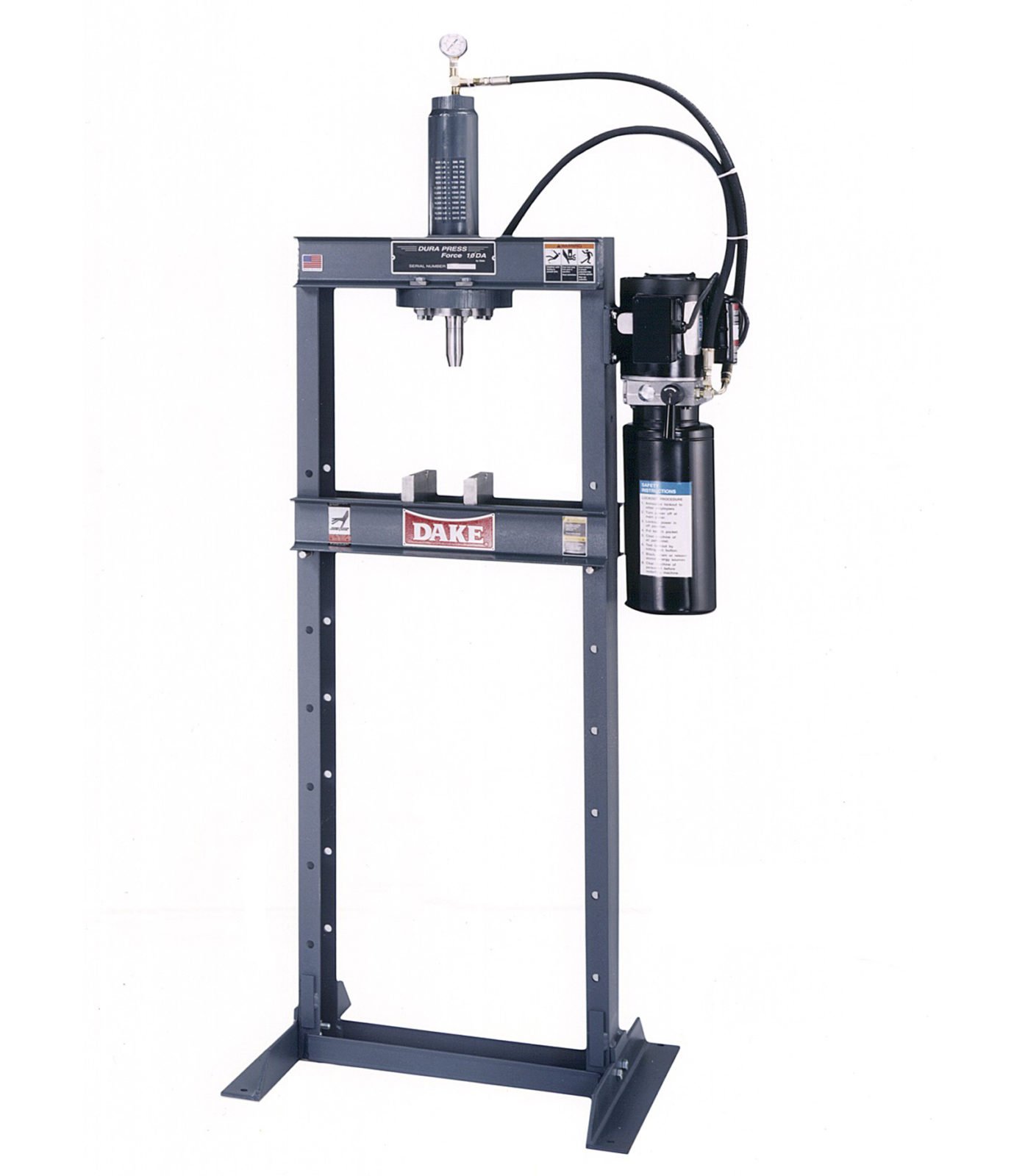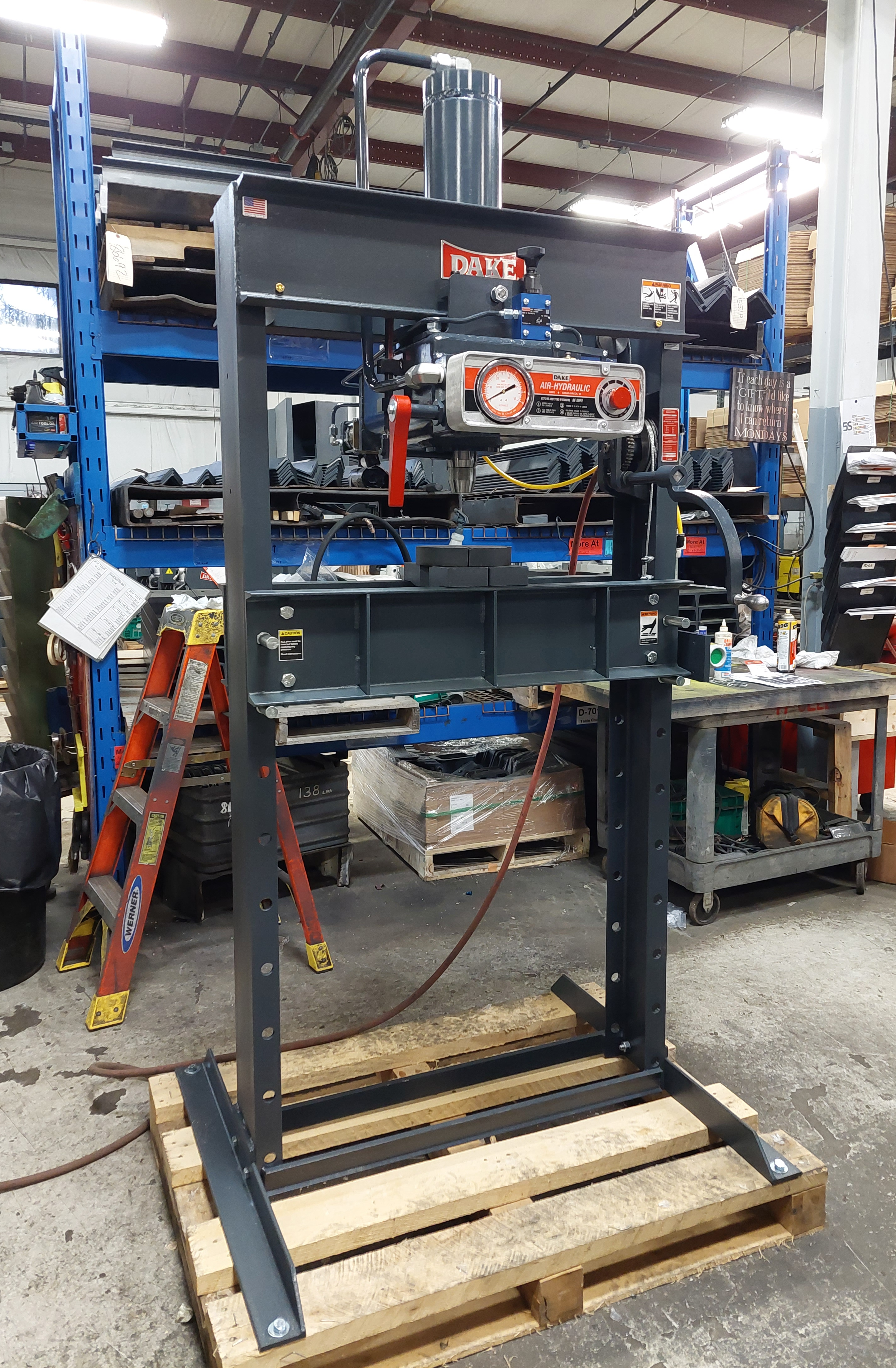Whether you are using hand-held tools or power machinery, there is always a way to prolong the lifespan of these metalworking tools.
Reducing the amount of daily wear and tear on your metalworking machines is not hard. The biggest culprit to look out for is highly abrasive materials. These can be metal alloys, ceramics, graphite, and other hard materials. Machining these abrasive materials every day can wear down any machine.
In this post, our experts provide a few tips to help you prevent premature wear and extend the life expectancy of your machines.
What Kills Machines
Our metalworking machines are built to last. These tough, stable power tools are able to cut, grind, bend, and form hard metals at high RPMs every single day.
However, performing such labor-intensive tasks on highly abrasive materials can wear down any machine after some time. In order to keep your Dake machines in tip-top shape, you need to apply protective coatings to harden the cutting tools even more.
Certain specialty coatings such as physical vapor deposition and diamond coatings are designed to enhance the machine’s resistance to wear and tear, which results in a longer lifespan for the machine.
Furthermore, these coatings help to cut down on the cost of maintenance and replacements parts. You can apply these protective coatings to any metalworking machines that perform the following tasks:
- Tapping
- Reaming
- Milling
- Drilling
- Inserting
- Cutting
Protect Your Machines from Abrasion
If you want your cutting machines to be able to withstand processing highly-abrasive materials on a daily basis, then incorporate some sort of abrasion protection. Let’s look at the automotive industry as an example.
If a metalworking shop produces metal parts for an automotive brand, they will often deal with parts that are made out of aluminum-silicon alloys. This material contains extremely hard silicon particles that have been embedded into the aluminum alloy.
Most metalworking machines use a carbide blade or tool, which can quickly degrade if it isn’t properly protected. Those tiny silicon particles will rip up the carbide tool, which will prove to be quite costly in repairs and replacements. The best (and most cost effective) route to take is to use a specialty coating that protects the carbide tool from abrasion.
Choosing a Coating
It’s no secret that carbide blades and tools experience accelerated wear and tear if they are not protected by a high-performance coating. To extend the life expectancy of your blades, invest in a coating that provides a harder surface.
This will serve as a protective barrier between the cutting tool and the material being cut. You also want to choose a coating that will keep your tool’s edges sharp and speed up the production time.
We recommend two types of high-performance coatings that do all of the above. The first is Physical Vapor Deposition (PVD) coatings, and the second is diamond coatings.
PVD Coatings
PVD coatings are gaining popularity in the metalworking industry. These are non-hazardous coatings that use a vacuum deposit method to produce a thin layer of protection. It is best used on metalworking tools that operate at lower coating temperatures between 150°-500°C. Lower temperatures ensure that the fundamental properties of the material are not altered.
There are many carbon-based PVD coating options available on the market. These provide extra hardness and also help to reduce friction.
If you typically process non-ferrous material like aluminum alloys, we recommend the BALINIT Hard Carbon coating. This thin, smooth coating adds a hardness factor of 40-50 GPa, and it works with a variety of highly-abrasive materials.
Because it works as such a thin, smooth layer of protection, it also helps to maintain the blade’s sharp edge. Some metalworking shops have reported a 95% production rate increase and a reduction in production costs of 55%. You can even perform dry cuts with this coating.
Diamond Coatings
For extra hard materials, you may need to break out the diamond coatings to save your machines. It is common knowledge that diamonds are the hardest substances on the planet. The only way to cut a diamond is to use another diamond. This means that diamond coatings are the strongest protective barriers you can find.
Polycrystalline diamond (PCD) cutting tools are typically used to process aluminum alloys with a higher silicon content. This type of coating is created by sintering a composite of diamond particles with a metallic binder. The result is the hardest protective coating imaginable.
While diamond coatings are ideal for enhancing a machine’s resistance to wear and tear, they do lack the chemical stability that is needed to withstand extremely high temperatures. They can also dissolve when they come into contact with iron.
Keeping these factors in mind, we recommend that you only use diamond coatings to process high-silicon aluminum alloys, metal matrix composites, and carbon fiber reinforced polymers (CFRPs).
Another thing you should know about diamond coatings is that they are geometrically limited. This means that they can be a bit too rough to process non-ferrous materials. They can also be very expensive.
Alternative Coatings
If you don’t think diamond coatings will work well in your metalworking facility, then you can try plasma-assisted chemical vapor deposition (PACVD). This works as a crystalline diamond coating in a variety of thicknesses and surfaces. It’s a great alternative if you ever need to cut fiber-reinforced plastics, graphite, ceramics, or extremely hard metals.
It works by coating the carbide blade with two different gases. The blade is then heated in a vacuum container and assisted by plasma.
This process can be done in alternating cycles to control the thickness and the surface of the coating. It is more cost-efficient than a diamond coating, and it can help to extend the life expectancy of your metalworking machines.
Wrapping Things Up
While some manufacturers may be satisfied with using uncoated carbide blades, our experts here at Dake don’t recommend that.
Using a high-performance coating on your carbide tools will help prevent premature wear, speed up the production time, help reduce the overall costs of production, and extend the lifespan of your metalworking machines.
To learn more about Dake products, get in touch with our team today.
-1.jpg?width=1200&height=525&name=DAKE003_%20Logos_Red%20(002)-1.jpg)

.jpg)

